As the World Shuts Down, is this Time for Taiwan?
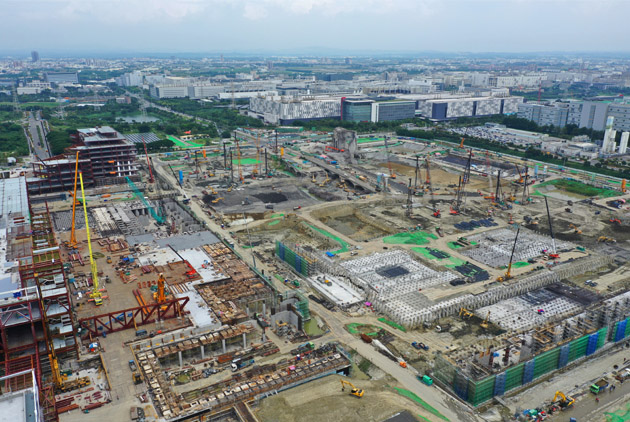
Source:Chien-Tong Wang
A global pandemic has moved Taiwan from the edge to the center. In 1950, when the Korean War ushered in the Cold War, Taiwan became part of the first island chain. In 2020, as COVID-19 ravages the planet, and as China–United States relations continue to deteriorate, people who are seeking refuge from the virus, exiled from their homes, returning to the motherland, or looking for new investments—all congregate in Taiwan. What does history have in store for Taiwan this time?
Views
As the World Shuts Down, is this Time for Taiwan?
By Pei-Hua Lu, Ching Fang Wu, and Yi-Shan ChenFrom CommonWealth Magazine (vol. 708 )
1. Those Escaping the Virus Have Returned
On a weekend afternoon in the bamboo forests of Elephant Mountain, someone seems to be rapping in a mixture of Taiwanese and English. It’s the rap artist known as Raco G, showing off his hip-hop dance and music.
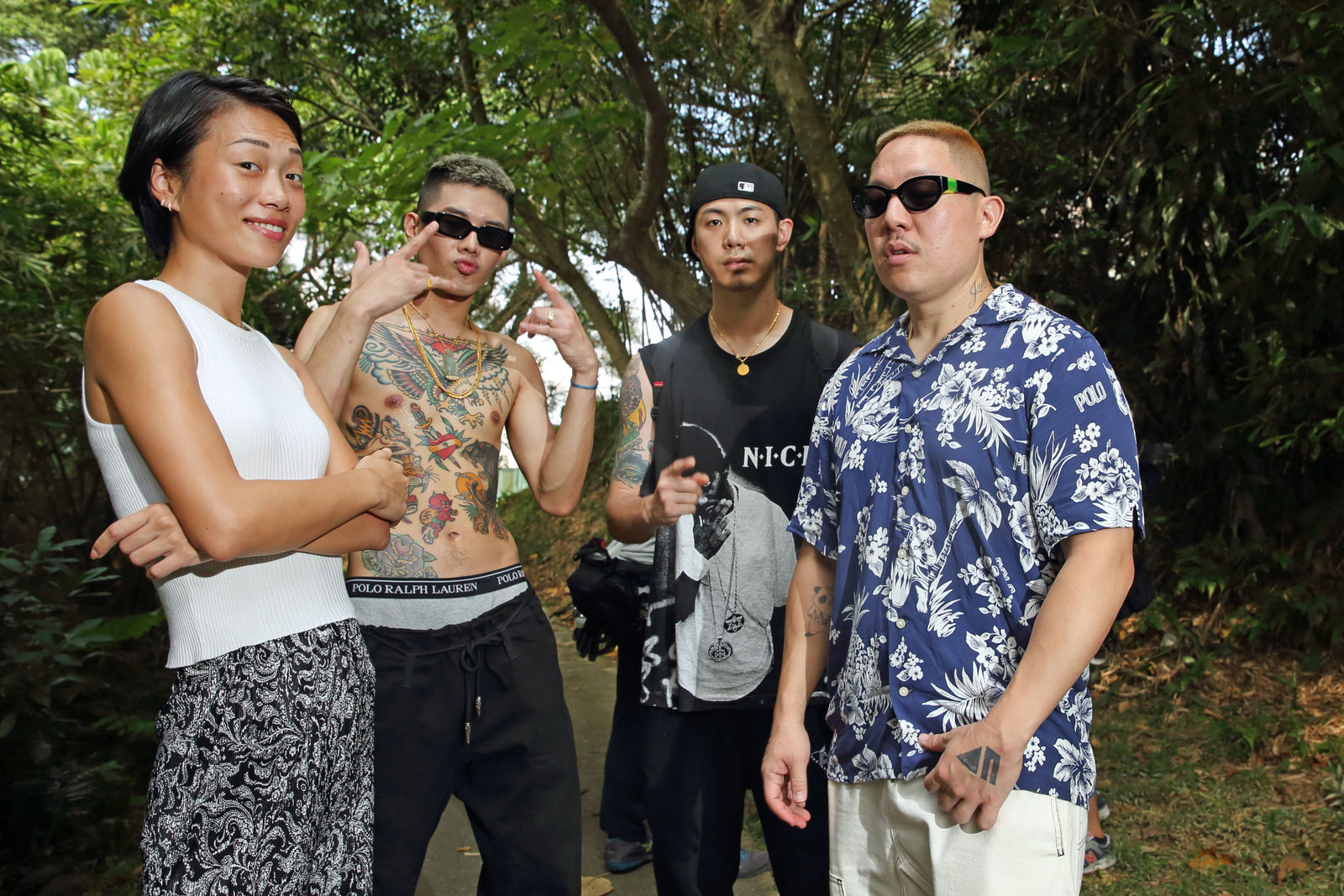 The woman at the far left of the picture is famed American indie queen Anita Gou and the man beside her is rap artist Raco G. (Source: Chien-Tong Wang)
The woman at the far left of the picture is famed American indie queen Anita Gou and the man beside her is rap artist Raco G. (Source: Chien-Tong Wang)
His music will be used in a movie about Taiwanese diaspora, directed by Eddie Huang. It’s scheduled to hit theaters as soon as next year.
Huang is a famous second-generation Taiwanese American. His autobiography, “Fresh Off the Boat: A Memoir” has been adapted into a hit TV series. He is also a chef and restaurant owner. He owns a Gua-Bao restaurant in Manhattan called BaoHaus. He put Taiwanese street food on the map in the Big Apple.
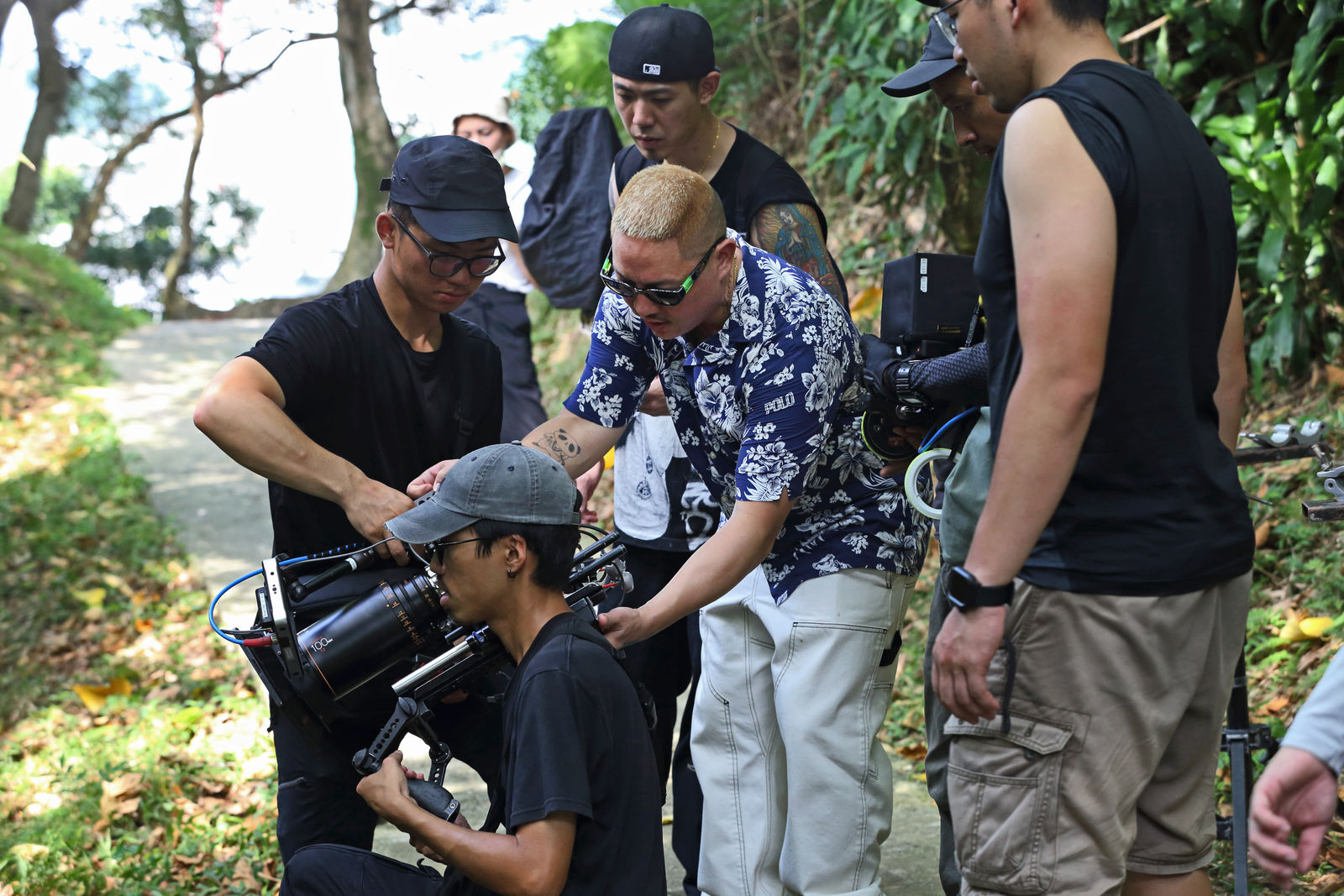
(Source: Chien-Tong Wang)
In March, he returned to Taiwan to escape the COVID-19 pandemic. He has been renting for a year now. Working alongside Taiwanese musicians, he has already completed two movie scripts telling stories set in Taiwan.
His producer is famed American indie queen Anita Gou. Four of her movies have competed at Sundance. She made the Forbes 30 Under 30 list. “We knew of each other, but had never met,” says Gou. She left Taiwan after graduating grade school. She lived in Los Angeles, while Huang lived in New York. They met for the first time in Taiwan this year.
“There’s plenty of hidden talent in Taiwan!”
Because of this, Gou worked with KKBox and theFARM to hold a party for 200 special guests in late August. She was looking for kindred spirits: people who have worked in creative industries overseas who have returned to Taiwan, or artists in the local show business. “Those returning from Hollywood and wanting to do something in Taiwan need to work with the Taiwanese. On the flip side, Taiwan also needs international talent.”
Leo Seewald, President of AmCham Taipei, says that everywhere he went in the last six months, he has met professionals who have returned to Taiwan to escape the virus.
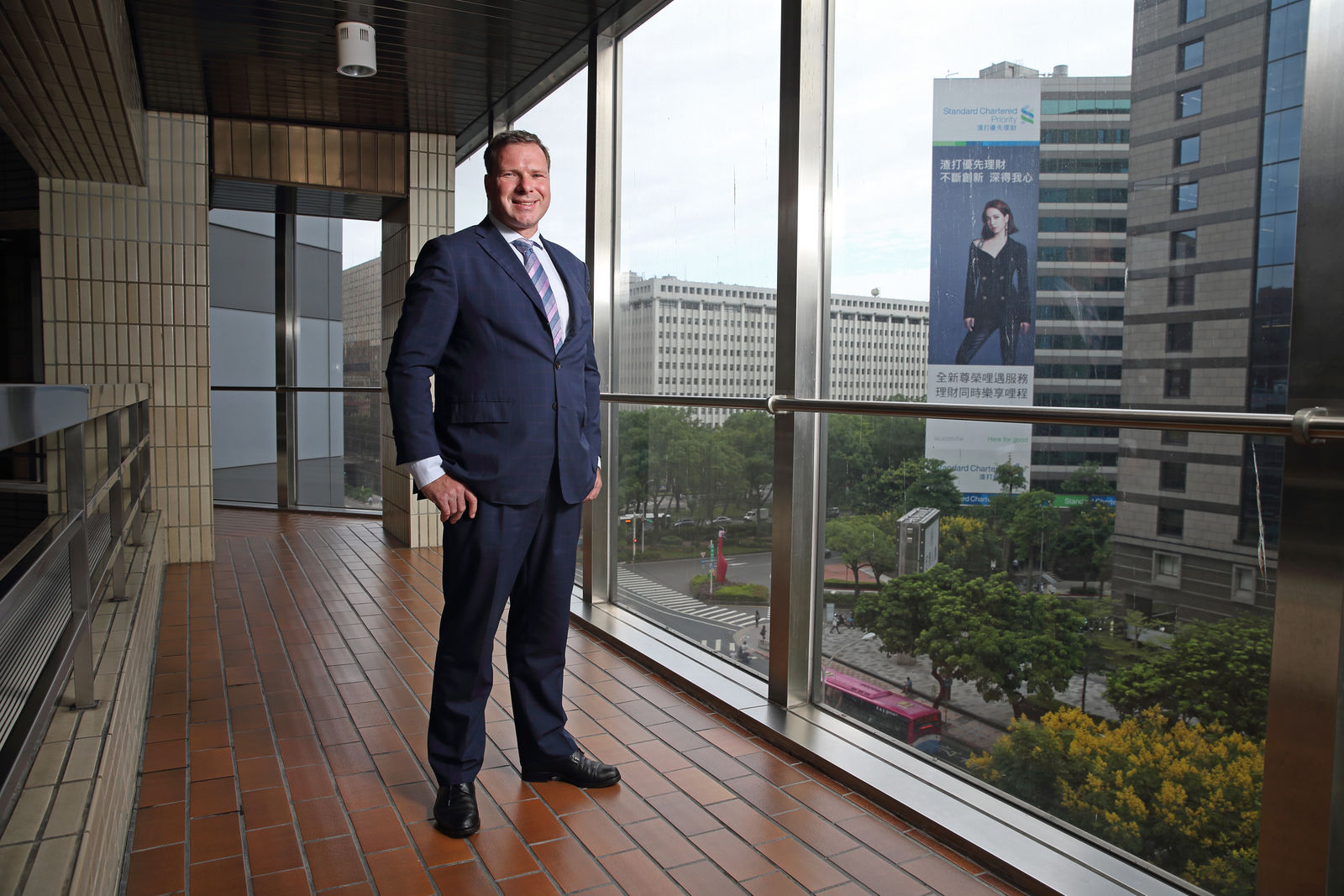
Leo Seewald, President of AmCham Taipei. (Source: Chien-Tong Wang)
“It’s a special time for Taiwan,” says Seewald, who has lived in Taiwan for the past decade. From an economic standpoint, the global supply chain is undergoing a sea change.
Taiwan’s success in the fight against the coronavirus has improved its standing in the world. “For the past few months, Taiwan’s resilience in the face of COVID-19 has put it in the limelight. I believe this will lead to more investments in Taiwan.”
So far this year, the world economy has shrunk by 5.2%. And yet, Taiwan’s economy has grown by 1.56%. It’s one of just 19 growing economies in the world. Whether it’s investments or exports, Taiwan is one of the few countries that’s celebrating good news.
In fact, even as travelling ground to a halt around the globe, Taiwan issued 3,500 visas for white collar workers in the first seven months of this year. That’s 3.5 times more than all of 2019.
2. The Americans Have Returned
“The biggest change is the Americans are back,” observes former Google Taiwan managing director Lee-Feng Chien (簡立峰), who is now on the boards of Taiwanese startups iKala and Appier.
For one, senior American officials such as Under Secretary of State Keith Krach and Secretary of Health and Human Services Alex M. Azar II have made visits to Taiwan, unprecedented in the 41 years since the United States broke relations with Taiwan. For another, beginning last year, many civil service lecturers have come to Taiwan from the United States on fact-finding missions. They plan to open courses on Taiwan and send civil servants on learning tours around the island.
“The main takeaway from Krach’s visit is that the United States places a great deal of importance on its relations with Taiwan,” says Seewald.
The Window of Opportunity in a Golden Moment
“Now is the golden moment,” Seewald figures. Signing trade deals with Taiwan has bipartisan support from both Democrats and Republicans. Whatever the outcome of the U.S. election, Taiwan’s window of opportunity will remain open, he feels.
“Taiwan is the best place from which to observe China,” says Gerry Shih, the interim bureau chief in Beijing for The Washington Post.
He moved from Seoul to Taipei this May. In mid-September, he broke the news that a small Chinese company called Shenzhen Zhenhua Data Technology has compiled data on more than two million people around the world, including many who hold prominent public positions. This piece of investigative journalism was completed in a shared office in Taipei.

Gerry Shih, the interim bureau chief in Beijing for The Washington Post. (Source: Zhouqi Wu)
“I never thought I would be in Taiwan.” Shih’s parents moved to the United States from China’s Yunnan Province. Growing up in San Francisco, he has no ties to Taiwan. But this March, when China expelled journalists from major American media outlets, Shih found himself in Korea. It was not long before he realized Seoul only saw China from the perspective of the power play on the Korean peninsula. What’s more, Korean was not a language he could master. Taiwan’s Ministry of Foreign Affairs reached out, and so Shih and his wife came to Taiwan.
So far this year, the Ministry of Foreign Affairs has issued 28 additional visas for foreign journalists. Eight of them were for Americans expelled by China: among them, The New York Times, The Wall Street Journal, The Washington Post, and the Associated Press. This is also the first time in years that representatives from mainstream American media have set up shop in Taiwan. Taiwan’s exposure is at an all-time high.
A foreign journalist who has declined to be named says it is still too politically sensitive to officially open a bureau in Taiwan. That’s why The New York Times moved its Beijing office to Seoul. But four of their reporters are here in Taiwan. “In the long term, it is only natural to have an office in Taiwan,” he says. It’s just that no media company has been brave enough to make the first move.
3. Taiwanese Businesses Have Also Returned
Besides people, there is also cash. Taiwan is experiencing the strongest investment boom in a decade. This year, the investment rate in Taiwan reached 23.44%, a ten-year-high.
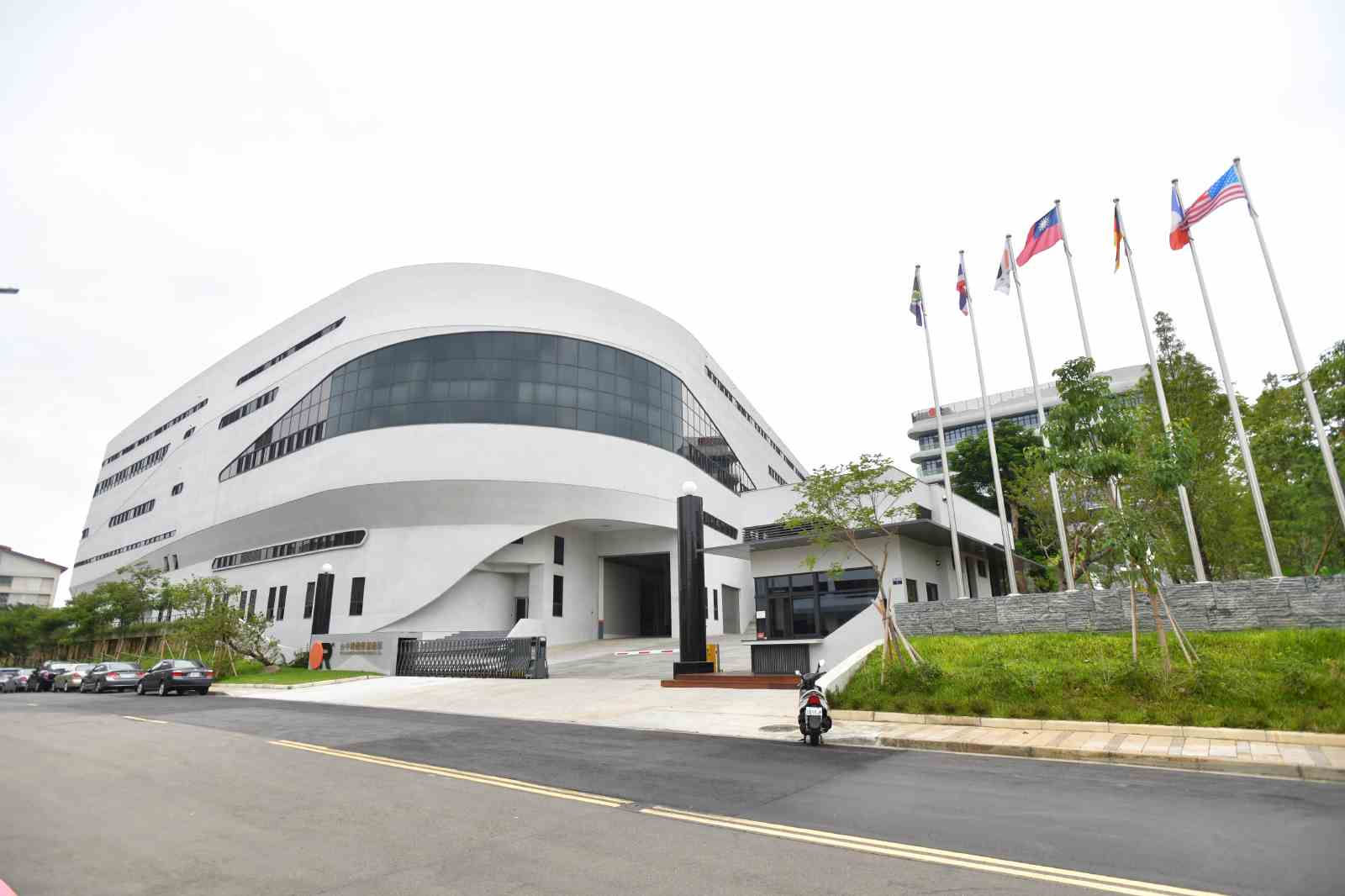
(Source: Kuo-Tai Liu)
In the past, the end product of the telecommunications industry was the smartphone, a gadget built by a huge amount of cheap labor. But future 5G equipment will come in smaller quantities and greater varieties. It’s no longer about the economy of scale. Higher automation will be required, which is good news for Taiwan.
According to statistics compiled by InvesTaiwan, three major investment programs launched by the government have paid off—the “Welcome Back Action Plan”, the “Action Plan for Accelerated Investment by Domestic Corporations”, and the “Action Plan for Accelerated Investment by SMEs”. The three cities that have attracted the most investments are Taichung, Tainan, and Taoyuan. Thirteen companies have invested more than ten billion dollars each in Taiwan.
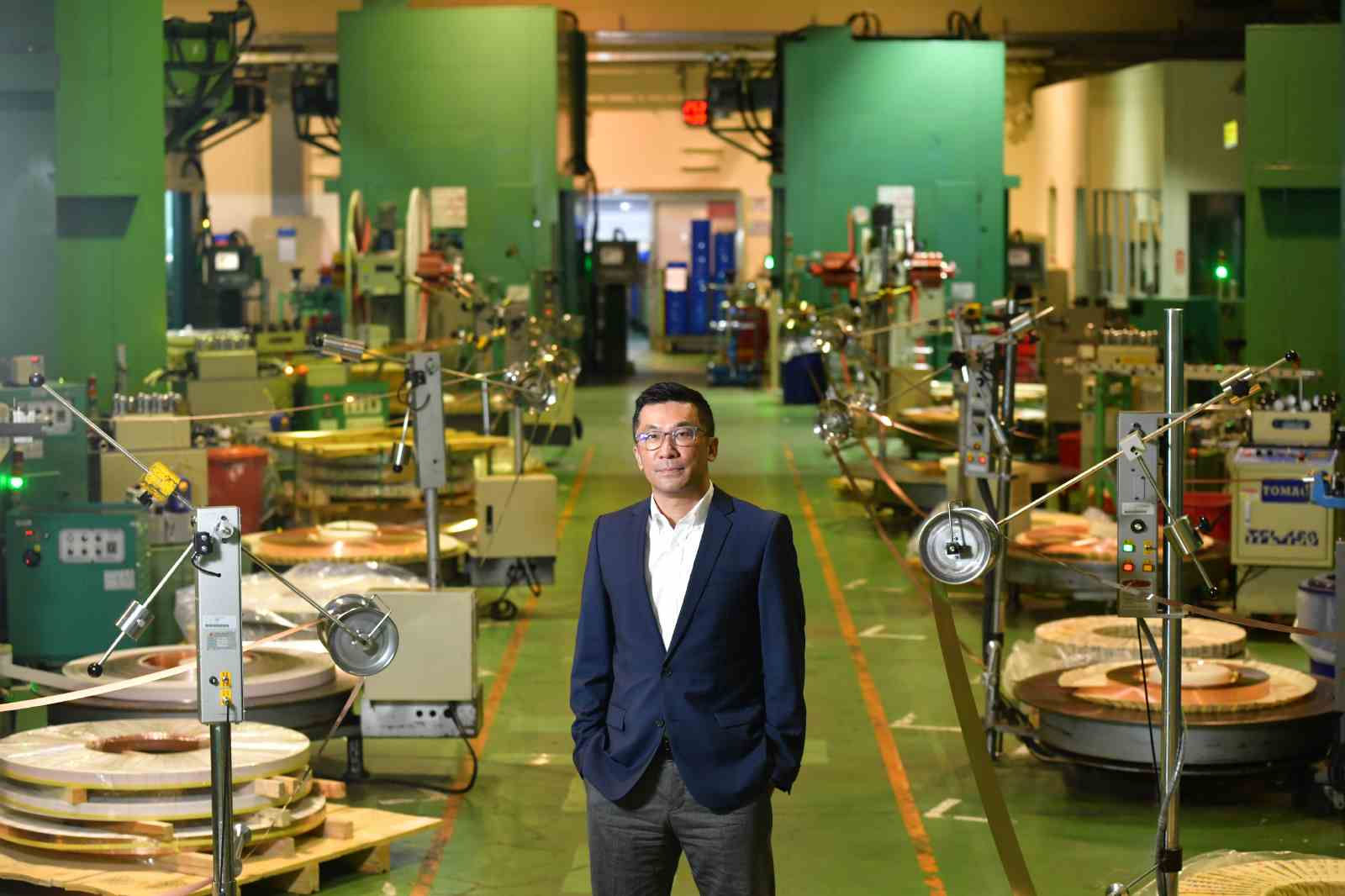
The lead frame leader SDI Corporation (順德). (Source: Kuo-Tai Liu)
Last April, lead frame leader SDI Corporation (順德) announced it was investing an additional 2.5 billion in Taiwan. Once, they made the SDI staplers that sold around the world. Now, they make lead frames for chip packages with an unsurpassed degree of sophistication. From Dyson hair dryers to 5G base stations; from the IC chips used in electric cars to supercharger stations; so much depends upon the simple lead frame, securing the chips with tiny needle feet, made by SDI.
4. The Biggest French Investment Is Here
We shift our focus south to Tainan. Multiple cranes are visible as we approach the Southern Taiwan Science Park. Inside the park proper, there are more construction workers than actual engineers. Dump trucks form a daisy chain. The whole place is a huge construction site.
Whoever is selling land in the Southern Taiwan Science Park, TSMC is buying.
TSMC's Fab 18 lies at the end of the road. To the left is the display company HannStar’s 74-acre plant, which has lain abandoned for more than ten years. TSMC is buying that, too.
“TSMC will buy any plant that’s for sale in the Southern Taiwan Science Park,” says David Tien (田揚名), General Manager of PwC Taiwan Real Estate.
The fact that TSMC is snapping up old factories and converting them to new fabs means they have a lot of impatient clients waiting in line.
In late September, Mark Liu (劉德音), executive Chairman of TSMC, noted that the COVID-19 pandemic has rejuvenated interest and investment in ecommerce, the stay-at-home economy, and virtual reality. This was a shot in the arm for the semiconductor industry. Global output value is forecasted to grow by 3.3% this year; but in Taiwan, it’s growing five times faster than the rest of the world.
“This year, when TSMC chases the construction progress, they are measuring not in days, but in hours,” says a TSMC vendor.
The Tainan Technology Industrial Park is a half-hour drive from the Science Park. Air Liquide Far Eastern is building a hydrogen plant there. Their clients have requested that they begin production in three months. This is a joint venture between French industrial gases giant Air Liquide and Taiwanese conglomerate Far Eastern Group. They aim to provide high-purity gases and advanced materials for semiconductor companies.
“This is the biggest ever investment in Taiwan from a French manufacturer,” says Daniel Liu (劉大年), director of the Regional Development Study Center at the Chung-hua Institution for Economic Research. The Dutch company ASML Holding is also building its first overseas EUV (extreme ultraviolet) training center in the Southern Taiwan Science Park for the sake of TSMC.
5. Google, Microsoft, and Amazon are All Coming to Taiwan
Another wave of growth is coming from off the coast of Yilan.
In late August, the United States Federal Communications Commission gave Google and Facebook the go-ahead to begin operating the Pacific Light Cable Network (PLCN), which is the newest and fastest submarine cable to cross the Pacific Ocean. Google and Facebook ditched plans to dock the giant data cable in Hong Kong, opting instead to land in Yilan’s Toucheng Township and the Philippines. This is the second Google-owned submarine cable to reach Taiwan since 2016.
The existence of this big wire puts Taiwan in a brand new strategic position.
A senior manager at a Taiwanese telecom company points out that since the Hong Kong national security law went into effect on July 1st, the Americans have made it very clear they no longer differentiate between Hong Kong and China. Docking the cable in Hong Kong and working with Hong Kong stockholders are both in violation of the State Department’s Clean Network program. Fortunately, Taiwan is counted as a member of the free world.
“Due to national security concerns, in the past few months, over-the-top (OTT) media services and public cloud providers that used to work in Hong Kong have been very busy scouting alternatives in Singapore, Japan, and Taiwan,” says Chau-Young Lin (林昭陽), President of Chunghwa Telecom's Data Communication Business Group.
Facebook and Amazon have data centers in Hong Kong. Microsoft’s data center is in Singapore. Foreign investors and telecom operators have floated rumors that Amazon and Microsoft are proactively surveying locations in Taiwan. It is very likely they will build data centers here.
Google already has a data center in the Changhua Coastal Industrial Park. Not only have they confirmed they are building a second one in Tainan, they are also buying land and equipment in Yunlin.

Google already has a data center in the Changhua Coastal Industrial Park. (Source: Chien-Tong Wang)
Chunghwa Telecom is already feeling the squeeze from the massive surge in data traffic. Lin uses the data center that began operations in 2017 as an example. The original plan was to build in six phases. It was supposed to be enough to satisfy demand until 2025. But complex factors such as the pandemic, the return of Taiwanese businesses, and the trade war between China and the United States have thrown a monkey wrench into the works. Demand skyrocketed. It was a state of emergency. Chunghwa has had to jump straight from phase three to phases four and five.
The market is changing five years earlier than they had anticipated. Chunghwa was left no choice but to go back to the drawing board. To keep up with demand for the next decade, they plan to build three new data centers in northern, central, and southern Taiwan.
Talent, money, data...everything is falling into place. Whether you are looking at the old economic model, the new world order, or the international stage, you can’t help but realize the greatest window of opportunity in 20 years is opening up for Taiwan.
Strategic Importance is a Double-Edged Sword; Geopolitics Has Its Own Pitfalls
“Taiwan is changing, but whether for better or worse, it’s too early to say,” says Lee-Feng Chien.
Geopolitics still poses the greatest challenge.
International credit rating agencies put it very bluntly: the biggest reason Taiwan’s credit rating will not get any higher is due to geopolitics.
A company that has returned to invest in Taiwan says its clients still fret over the threat of China. They stipulate that a third production site must be found outside of Taiwan.
Chien observes that the only way the United States can decrease Western reliance on China is to uplift India. When that day comes, it is unavoidable that Taiwan’s tech industry will migrate again.
The second biggest hurdle is Taiwan’s lack of natural resources. This year, Taiwan’s population is on track to experience negative growth for the first time in history. This will become a bottleneck to growth.
“The government needs to think about how to make it so the thousand or so people who got Employment Gold Cards didn’t come back just to escape the virus”, says Susan Wu. She left Taiwan at age two and only came back with her two children last August because she and her husband were issued Employment Gold Cards.
China No Longer Dominates the Digital World
As a software engineer, Wu was involved in early investments in Twitter and Medium. She also founded the game company Ohai, and she used to manage the Australia and New Zealand markets for the online payments unicorn Stripe. In 2010, the American business magazine Fast Company chose her as one of the most influential women in the tech industry.
The companies she’s invested in make billions of dollars in total. She’s also financed startups in the United States, Australia, and New Zealand. She came back to Taiwan for her family. Currently, she’s advising Taiwanese startups and encouraging entrepreneurs to go global.
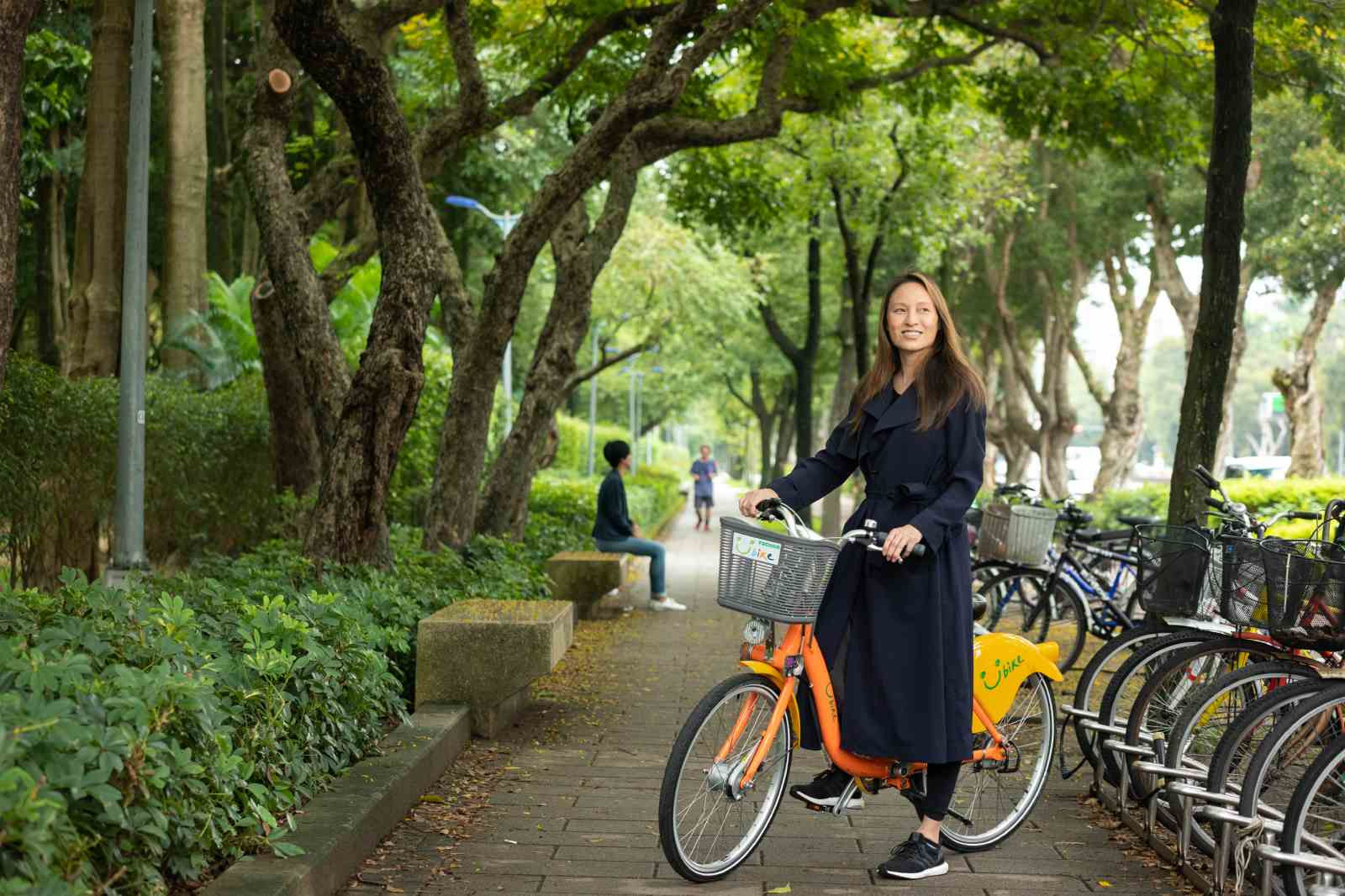
(Source: Zhouqi Wu)
The world’s digital economy is facing a new opportunity, because the Chinese have lost their dominant position in the online ecosystem.
According to Chien, ten years ago, 45% of netizens were Chinese. This monopoly led to the success of ecommerce platforms such as Alibaba. But now there are 4.7 billion people on the internet, and less than one in five are Chinese. The United States’ crackdown on apps such as TikTok and WeChat makes it clear that they want to isolate China’s internet and Chinese internet companies.
An enormous digital market has appeared outside of China. If Chinese enterprises cannot wet their beaks, it’s a chance for Taiwanese startups to shine.
But can Taiwan leverage international talent and take on the global market? There lies the rub.
As a member of the board, Chien uses Appier as an example. This tech startup has a Taiwanese founder. Half of its four hundred employees are engaged in research and development in Taiwan. But the other half are sales representatives sprinkled throughout the world. “You can hardly say which country it is from,” says Chien.
If Taiwan’s population is decreasing, then the best recourse may be to hire more international talent and help Taiwan take on the world.
Have you read?
♦ What post-COVID-19 Business Opportunities does Taiwan offer? A Dutch Perspective
♦ Taiwan needs to build a brand image beyond COVID-19
♦ Taipei Professional Orchestra: Big Band Jazz Made Possible by COVID-19
Translated by Jack Chou
Edited by TC Lin
Uploaded by Penny Chiang






